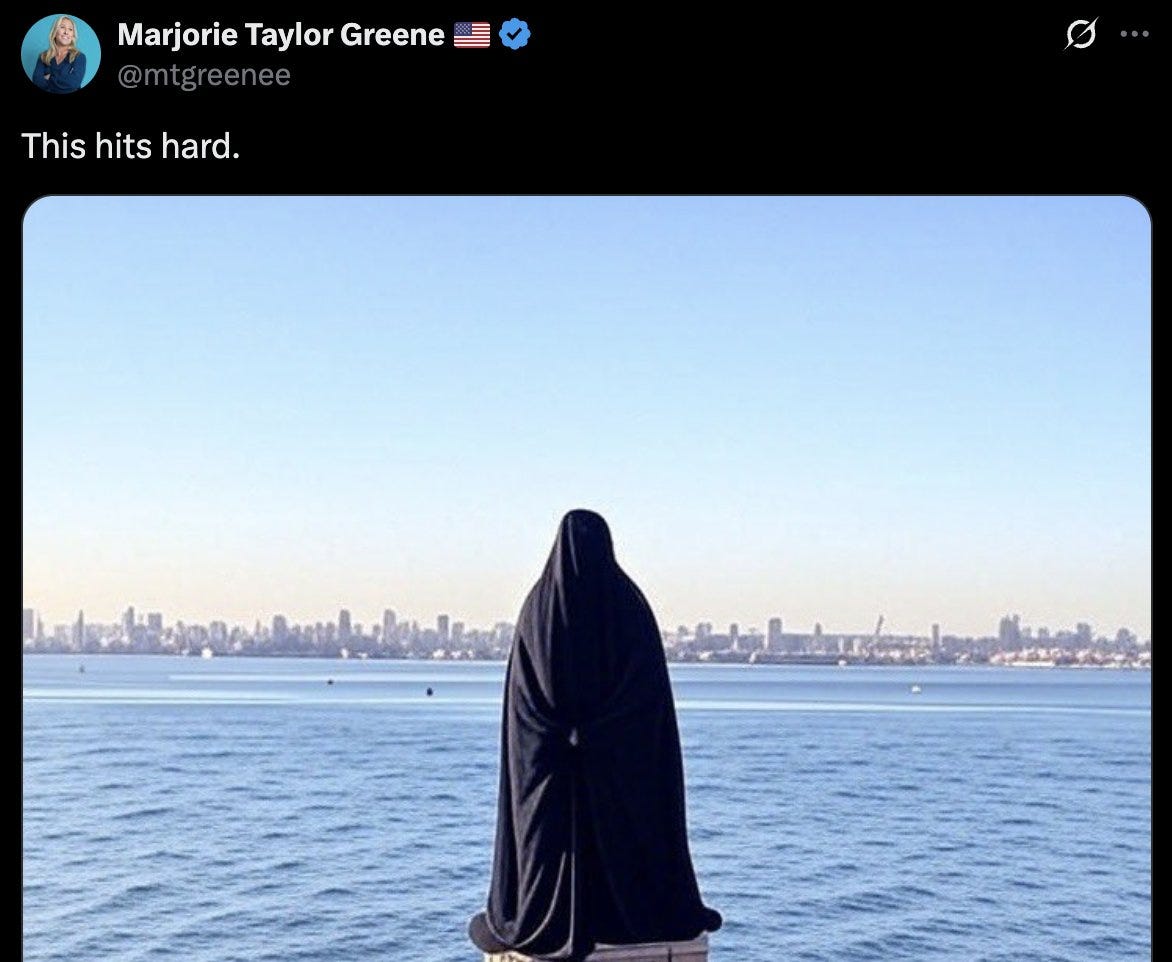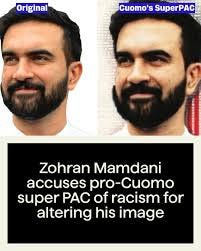The Muslim Boogeyman Doesn’t Work Anymore
Zohran Mamdani, Islamophobia, Palestine, and the Cracks in America’s Favorite Fear - the Beginning of a Political Reckoning
When the polls closed in New York City, announcing Zohran Mamdani as the Democratic nominee for mayor, the outcome was never supposed to look like this.
For months, Zohran Mamdani’s opponents tried to reduce his candidacy to a caricature. They darkened his skin in campaign ads and sharpened his beard. They flooded the city with rhetoric that collapsed criticism of Israeli apartheid into accusations of antisemitism. They leaned on the same script that for decades has cast Muslims as a permanent threat, foreigners at best, enemies at worst. They underestimated how much has changed.
Since 9/11, Islamophobia has shaped many layers of American public life. It was manufactured in newsrooms, classrooms, police departments, and war rooms. It was embedded into laws and airport security lines. It was etched into the silences that followed every attack, every war, every executive order. It taught millions of Americans to see a beard or a hijab as a threat. It taught politicians that Muslim existence is always provisional, and it taught every visibly Muslim child that they would be asked to apologize for the world’s violence before they were ever allowed to belong.
Mamdani’s campaign was not supposed to survive in that environment. His name, his faith, his solidarity with Palestine were never supposed to be acceptable in the most Jewish city outside Tel Aviv. But the same machine that has produced twenty years of suspicion and silence is beginning to rust.
The backlash was as predictable as it was desperate. Right-wing figures warned of another 9/11, AI-generated images circulated of a burqa-clad Statue of Liberty, and they said New York would become “New Gaza City.” During the campaign, Mamdani said he even received death threats.
It is easy to dismiss these attacks as fringe, but that would ignore how Islamophobia has always functioned. It is not confined to one party or one ideology: Islamophobia exists in the quiet mistrust of Muslims in politics and the loud accusations hurled at those whose existence is a reminder of imperial violence abroad, a violence that might make its way home. And since 9/11, Islamophobia has been embedded in media headlines, surveillance programs, and foreign policy. Islamophobia, for all intents and purposes, is a socially acceptable form of bigotry, and it is far more organized than many care to admit.
The propaganda has always served a purpose. Islamophobia flattens a global faith of nearly two billion people into a singular, hostile image, erasing the complexity of Muslim life and replaces it with a manufactured narrative of danger. The way the ‘Muslim Boogeyman’ has been framed makes liberation movements suspect and dehumanizes those demanding dignity. And it is what allows Palestinian grief to be dismissed as extremism and Palestinian survival to be painted as a threat to national security.
But Islamophobia is not just an idea or a campaign strategy: it is violence, plain and simple. The rhetoric has always been deadly. One of the clearest examples was the murder of the Abu-Salha siblings, three Muslim students in North Carolina in 2015, executed in their home by a man radicalized by years of manufactured fear. More recently, the murder of six-year-old Wadea Al-Fayoume, stabbed twenty-six times in Illinois in 2023, was because his Palestinian identity made him disposable in the eyes of his neighbor. It is the countless Muslims surveilled, profiled, assaulted, and killed because this country has normalized the fantasy that their existence is dangerous.
Mamdani’s win represents more than electoral success. For every brown, immigrant, visibly Muslim child who has lived under the shadow of suspicion, it is a rupture in the story we have been told. His win is proof that our right to exist cannot be made contingent on obedience and silence. It is proof that leadership does not have to come dressed in assimilation or stripped of solidarity for the comfort of those in power, unwilling to address the issues we care about. If we trade our dignity for acceptance, we abandon our principles, and that is not freedom.
Islamophobia has also often been deployed in tandem with false accusations of antisemitism, and we saw this thrown against Mamdani as well. He was attacked for recognizing what human rights groups across the world have recognized: that Israel is committing genocide. As a Palestinian, that accusation, made as intimidation or threat, was nothing new for me to see.
For Palestinians, the expectation to constantly differentiate between antisemitism and anti-Zionism is another layer of that control. In this primary race, Mamdani faced the same expectation. We are asked to perform nuance, to cushion every plea for justice in disclaimers, to separate our survival from our rage. The suggestion that Palestinian liberation is inherently antisemitic is not only false, it is dangerous.
It collapses an entire people’s struggle into a weaponized talking point. Just as important, it insults the Jewish communities whose faith is not defined by occupation, whose history is dishonored by those who use it to justify the killing of children in Gaza.
Mamdani’s victory signals a generational rejection of those false binaries. It reflects a political consciousness shaped by Gaza, by anti-war organizing, by the lived experience of being told your name, your skin, your prayers, and your grief are threats to the nation. It also reflects that the same old racist smears are not going to work.
There is no illusion that the machine has been dismantled completely. Its leaders are regrouping, the propaganda is still being written, and the next wave of fear is already building. But the cracks are visible.
Islamophobia lost. The assumptions about who deserves to belong and who must stay silent are faltering. In this moment, there is only one word that feels honest. Alhamdulillah – Praise be to God.
Thank you for reading the piece and for being a part of the community








Thanks goodness this narrative doesn't work for most people anymore. If Israel's genocide in Gaza doesn't open people's eyes, I don't know what will.
no vote for Cuomo!